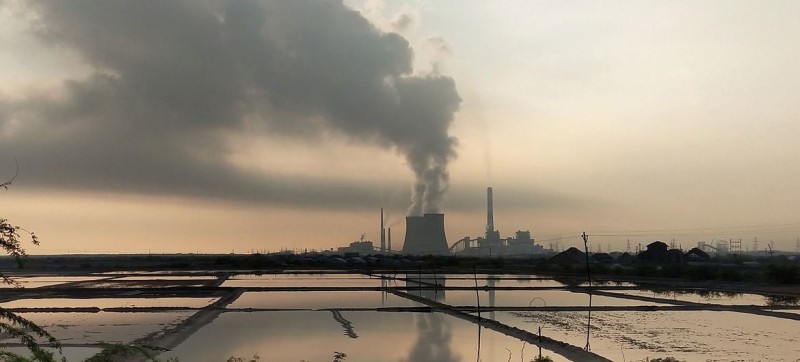Unsplash/Hassan Afridhi Air pollution, primarily from the burning of fossil fuels, is a serious problem in Indian cities.
Over the course of two weeks of meetings, countries are expected to make progress on adding new so-called “forever chemicals” to the list of toxic substances to be banned or restricted under the Stockholm Convention – the global treaty protecting human health and the environment from long-lasting chemical pollution.
They will also seek ways to further regulate the use of chemicals and pesticides under the Rotterdam Convention on hazardous chemicals management; and developing technical guidelines on the sound management of plastic and e-waste under the Basel Convention, on transboundary hazardous waste management.
Millions of deaths
According to the World Health Organization (WHO), in 2019, a small number of chemicals for which data are available were estimated to have caused two million deaths, including from heart and respiratory diseases, as well as cancers.
Among other important issues, the eleventh meeting of the Conference of the Parties (COP) to the Stockholm Convention, will discuss the development of compliance procedures and mechanisms, and review a range of recommendations stemming from the second evaluation of the Convention.
This will include evaluating the continued use of the insecticide DDT – still in use to control malaria in some countries – based on the report on the work of the DDT expert group; and the report on progress towards the elimination of the toxic organic chemical group, known as PCBs, and the draft strategy to meet the 2025 and 2028 goals to eliminate PCBs, set out in the Stockholm Convention.
Waste management
Later this month, the international community will come together again in Paris to continue working towards a new, legally binding international treaty on plastics pollution.
The sixteenth meeting of the COP to the Basel Convention, will consider the potential adoption of technical guidelines for the environmentally-sound management of plastic waste, as well as persistent organic pollutants.
Parties will consider recommendations from the Implementation and Compliance Committee, including progress achieved to reach national reporting targets.
An update on the work of partners involved with the Convention, focusing on electronic and electrical waste, plastic waste, and household waste, as well as preventing and combatting illegal trafficking in hazardous and other wastes, will also be presented to the COP.
Meanwhile, WHO says that the overall production of chemicals worldwide is on the rise, and sales are projected to almost double from 2017 to 2030.




Comments are closed.